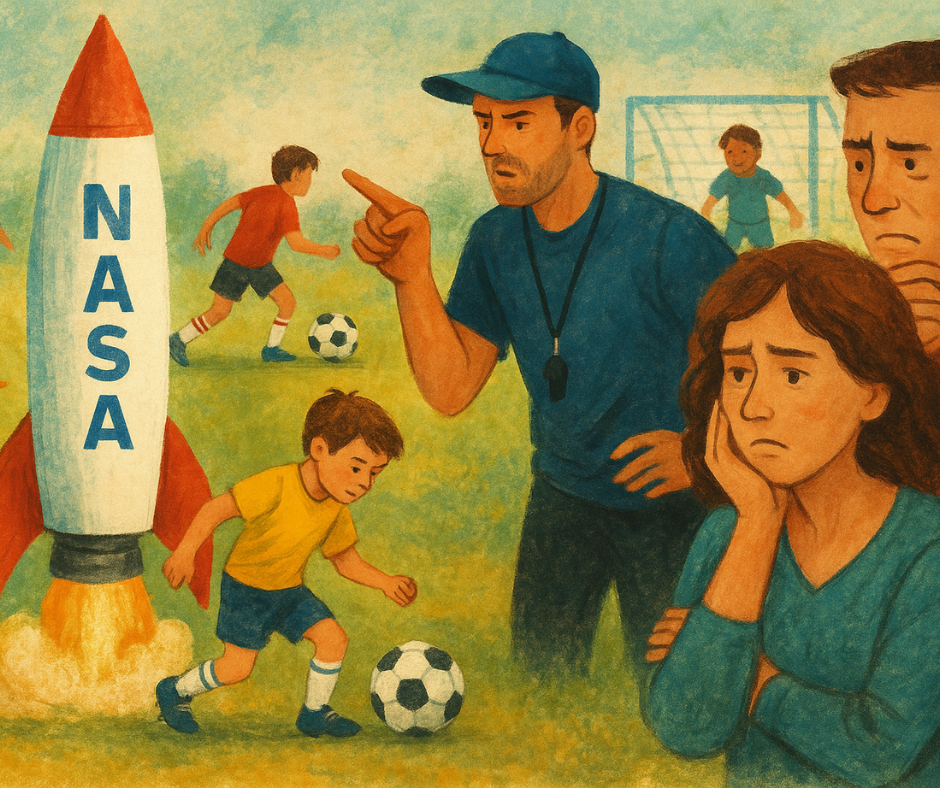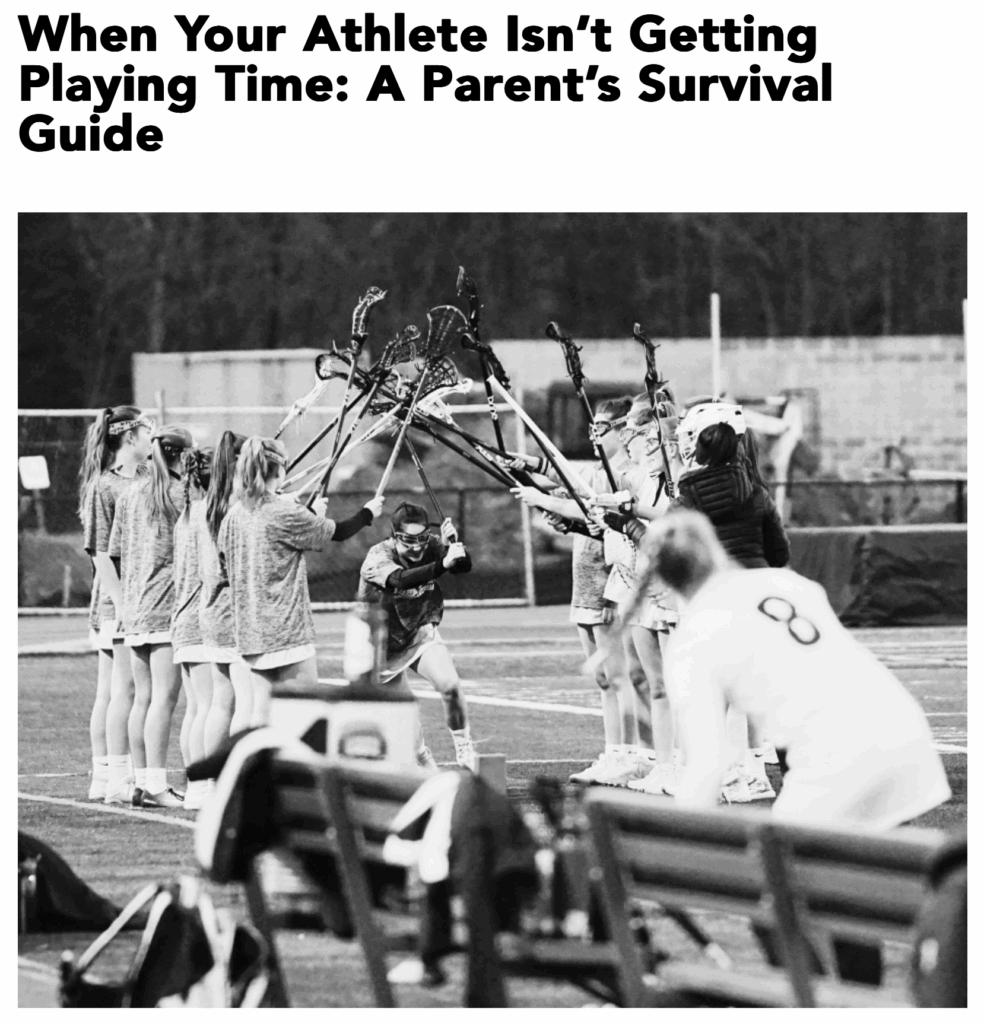
What a NASA Study Discovered About Kids That Every Parent and Coach Needs to Understand
What a NASA Study Discovered About Kids That Every Parent and Coach Needs to Understand. In 1968, NASA tested 1,600 children for creative genius potential. At age 5, 98% scored at genius level. By age 10, only 30% still scored that high. By 15, just 12%. By adulthood? A shocking 2%. Somewhere along the way, imagination gets silenced.
Take our Quiz to Find Out What Kind of Sports Parent You Are
And if you think that only happens in classrooms, look no further than youth sports. Seventy percent of kids quit organized sports by age 13, and one of the biggest reasons is this: the joy, the play, the creativity gets coached — or parented — out of them.
At 5, a kid dribbles down the soccer field imagining they’re Messi. They try a spin move, trip over their feet, and laugh. By 13, that same kid looks to the sidelines before every decision, terrified of making the “wrong” play.
The Real Cost of Killing Creativity
-
Fear of mistakes → fear of playing. If every turnover or missed shot gets punished — by the coach’s benching or the parent’s car ride lecture — kids stop experimenting.
-
Right vs. wrong replaces joy. When sports become about perfect execution, the game stops feeling like play.
-
Joylessness → quitting. If a sport no longer feels like theirs, kids walk away. And they are — in droves.
What Parents Can Do
We often think our job is to “fix” what our kids did wrong. But more often, our job is to protect their freedom to try.
-
Resist handing them the answer. Instead, ask: “What do you think? How else could that have worked?”
-
On the car ride home, don’t review mistakes. Ask: “What was your favorite part of the game?”
-
Remember: mistakes aren’t failures — they’re discoveries.
What Coaches Can Do
This problem isn’t only on parents. Coaches play a huge role in either shrinking or expanding a child’s creativity.
-
Ask players questions instead of giving directives: “What were you trying there?” “What else could you have tried?”
-
Let them play without interruption. Free play builds brains in ways drills never can.
-
Celebrate risk-taking. A wild, “wrong” play that shows imagination is just as important as the textbook “right” one.
The Payoff
Creativity isn’t something kids outgrow — it’s something adults train out of them. When coaches and parents give kids permission to fail, experiment, and laugh their way through mistakes, they keep the joy alive.
Sports should be the place where kids feel free — free to try, to fail, to imagine. Because when they lose that freedom, they lose the game.
This post was inspired by research shared by Ready Set Parent. Their site is an incredible resource for parents who want research-backed, thoughtful guidance on raising kids. Definitely worth checking out if you want more ideas on how to protect creativity and joy at home.
👉 For more like this and support along your youth sports journey, visit ilovetowatchyouplay.com and follow us on Instagram @theilovetowatchyouplay.
My Daughter Quit Youth Sports and This is What I Want All Parents To Know
The Careless Language of Youth Sports Parents
Nine Signs Your Child Has Burnout
The Reasons Girls Should Play Sports
About The Author
Asia Mape is a 3-time Emmy Award-winning journalist, former Division I athlete, youth sports advocate, and founder of Ilovetowatchyouplay.com. She’s a mom to three daughters—one Division I athlete, one soon-to-be, and one who ‘retired’—and all of their journeys through sport have shaped her mission to help other families navigate the chaos, pressure, and beauty of raising young athletes.













